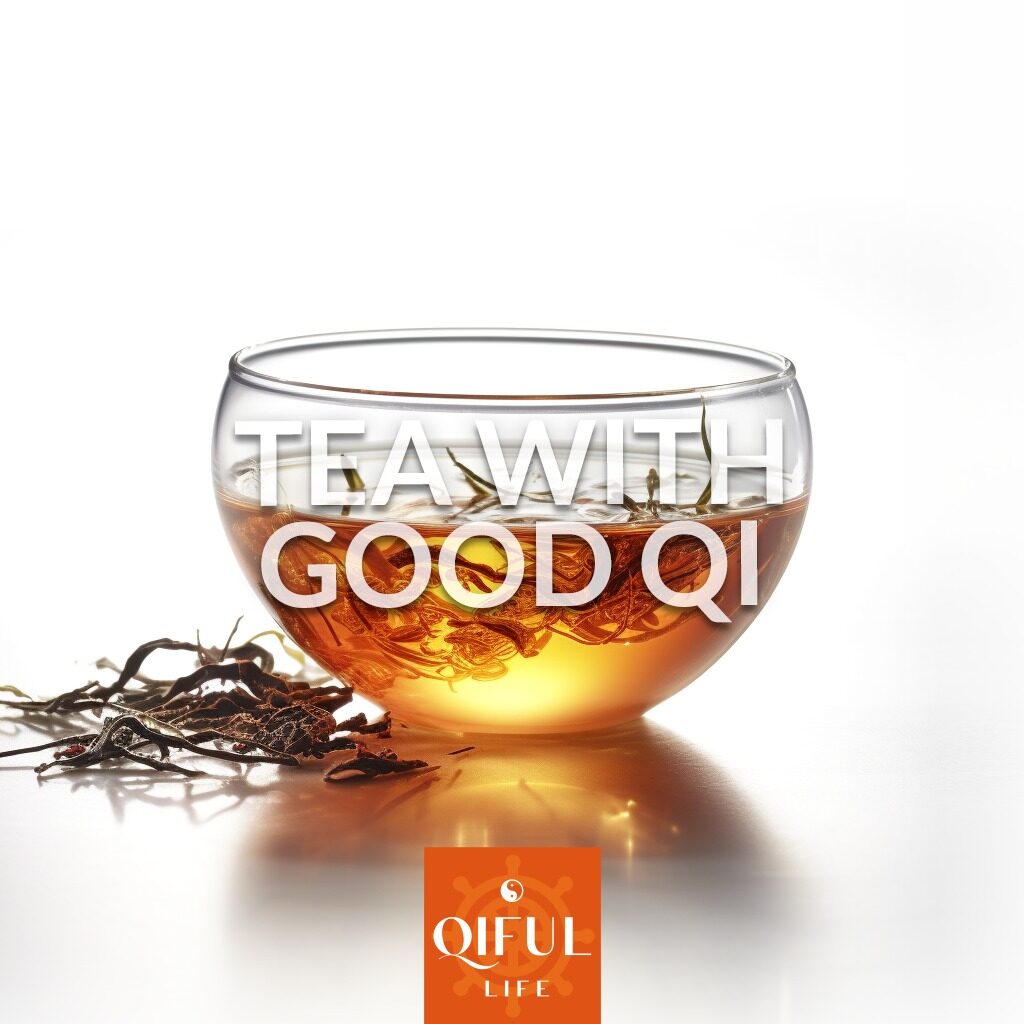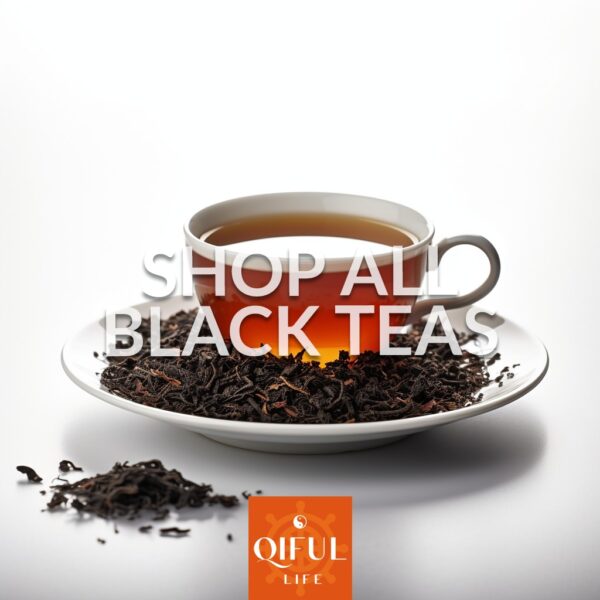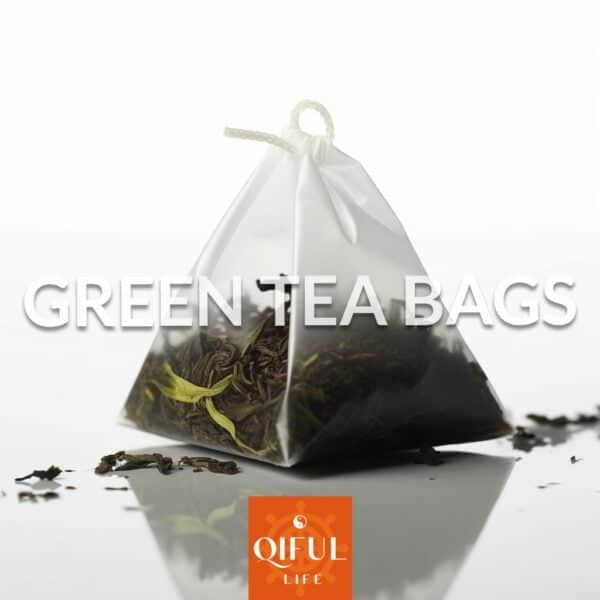Cha Qi translates as “Tea Qi” or “Tea Energy.” The term refers to the Qi found in tea. “Cha” means Tea in Chinese, while Qi means “Energy.” Cha Qi is typically used to refer to a tea with good energy when consumed. Teas with very strong Cha Qi produce an effect known as Cha Zui, which literally means “Tea Drunk.”
In this article, we will cover:
- Understanding Qi in Food and Drink
- How Cha Qi is Produced
- Teas that have the Best Cha Qi
- The concept of Cha Zui also known as “tea drunk.”
The Concept of Qi in Food and Drink
The concept of Qi is foreign to most western readers. To establish the idea of Cha Qi, the concept of Qi must first be understood. Qi means “energy” at its simplest form. To produce healthy Qi within tea or food, it needs to be free of pollutants and grow organically. This allows crops to grow in accordance with nature and absorb natural nutrients within a given environment.
How Cha Qi is Produced
Cha Qi occurs naturally within tea crops that are subject to healthy growing environments. This is typically found in small batch, remotely located areas. Additionally, most tea trees that are at least 50-60 years old produce batches strong in tea Qi. The long life of a tea tree is a testament to the quality of the environment. Old tea trees are used to produce yearly teas as well, so tea with good Qi isn’t limited to old tea; rather, typically is grown on old tea trees.
Rarely, do big brands produce teas with good Qi. The crops in which most big brand teas come from are from lower quality environments, typically closer to cities, roads, and other polluted areas. The tea trees used are all very young, which is shown in the height of the tea tree. Further, crops are machine plucked, which leads to stem and root damage – all of which influence the nutrients and overall health of the tea crop.
Teas that have the Best Cha Qi
Puerh Tea has the strongest Tea Qi. Aged Puerh teas over 40 years in particular tend to have the most apparent Qi. Typically, Raw Puerh has the best tea since it has not undergone cooking like Ripe Puerh. Overall, Aged Puerh before the 1990s typically produces the most noticeable Qi quality.
However, yearly crops that come from old tea trees also have good Qi. Some examples include black teas from Yunnan as well as Rock Tea from Wuyi Mountains. Yearly harvested Puerh from private estates can also fall into this category, although in recent years has become increasingly difficult to find due to the growing popularity of Puerh in conjunction with farmers pushing toward mass consumption over quality.
Taiwanese Oolong and Black teas, particularly from the Fushoushan and Shanlinxi areas, can also produce good tea energy. Taiwanese tea quality has changed over the years due to increased popularity with bubble tea and farmers gravitating toward production support for larger bubble tea brands.
The Concept of Cha Zui Otherwise Known as “Tea Drunk”
Anyone in the tea world who has tasted an aged or high quality tea probably has experience some form of intense Cha Qi, also known as “Tea Drunk.” In all honesty, the term probably shouldn’t be “drunk” and instead should be “high” but that is neither here nor there. Simply put, when you drink a tea that is strong in Cha Qi it can feel as if you have heightened senses, even ones that feel intoxicating despite there being no illegal substances involved.
Some tea experts believe Cha Zui is due to concentrated GABA or L Theanine in the teas – the 2 main components that crate the relaxing feeling in tea. Other experts believe polyphenols and alkaloids along with polysaccharides and organic germanium play a role. If you ask a tea farmer, they will tell you “Cha Qi the natural reaction to consuming nutrients in their purest form. They have been absorbed in stems and leaves that make their way into a tea.”
Cha Qi Observations
- Generally speaking, the older the tea, the stronger the Cha Qi. This is due to the nutrient transformation that takes place in fermented and oxidized teas. The tea leaves are said to harness energy if properly stored.
- Not all Aged Teas have strong Tea Qi, although this is pretty rare. Due to the unpolluted environments that weren’t subject to modernity in places like Yunnan or Wuyi Mountains in China, most teas before the 1990s have good Qi by default.
- Aged Oolong teas typically don’t have strong Qi. We don’t have a strong hypothesis as to why this is but speculate it is due to the process of oxidization coupled with aging. Based on our experience of tasting Oolongs aged from 20 to over 100 years, we rarely experience Oolongs with good Qi. The most prominent Aged Oolongs with Qi are ones that have undergone multiple wood firings.
FAQ: What Does Tea Drunk Feel Like?
Tea Drunk has multiple feelings including increased warmth and tingling sensations in the body. The mind can also experience heightened awareness, clarity, and focus. Tea with really strong Qi tends to naturally flow to where the body craves it the most. The feeling is entirely safe and not produced from any harmful components.
Step by Step Guide on Acquiring Tea Drunk Teas
- Choose a reputable provider of tea and ask them whether they have teas with good Qi. At Qiful Life, we made a special category of Cha Qi Teas that do just that.
- Get to know your tea source. Where do the teas come and are they from small batch providers? Ensue the tea crops you consume don’t derive from large batches used for big brands.
- Consider investing in Aged Tea. Although more expensive, Aged Teas such as Aged Puerh have good tea Qi.




